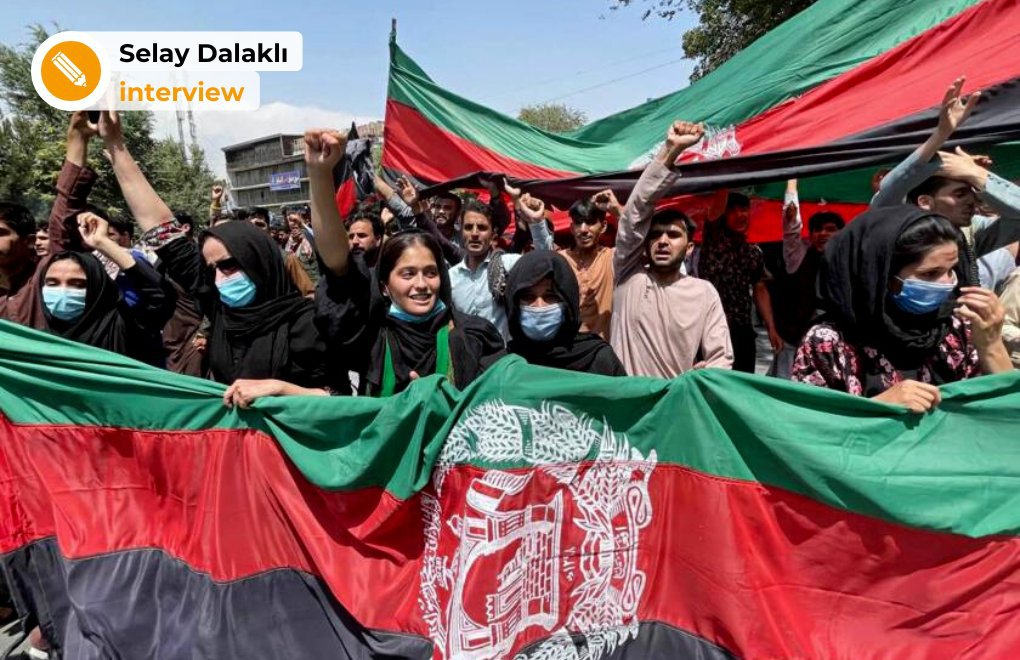* Credit: Anadolu Agency (AA) - File
Click to read the article in Turkish
It has been more than six months since Finland and Sweden applied for NATO membership following Russia's invasion of Ukraine.
While 28 of the 30 NATO member states have approved their NATO bids since then, Turkey and Hungary have not yet done so.
Turkey's position is rather different here, considering that Turkey, having expressed its concerns about "terrorism", signed a memorandum with the two Scandinavian countries, listing a series of requests and conditions to finally approve their NATO membership.
However, so much has happened since then: A new government has come to power in Sweden, Turkey was faced with a bombing targeting civilians in public space in a first in years and, citing this blast, Turkey launched airstrikes in northern Syria and Iraqi Kurdistan Regional Government.
But how will the recent change of government in Sweden affect its foreign policy and relations with Turkey? What do the public and politicians in Sweden think of relations with Turkey and the memorandum? What does Sweden's response to recent incidents tell us in this context?
Bitte  Hammargren, an independent analyst and Senior Associate Fellow of the Swedish Institute of International Affairs (UI) in the capital city of Stockholm, says that there has been a "paradigm shift" in Sweden's foreign policy.
Hammargren, an independent analyst and Senior Associate Fellow of the Swedish Institute of International Affairs (UI) in the capital city of Stockholm, says that there has been a "paradigm shift" in Sweden's foreign policy.
According to her, a reason why Turkey opposes Sweden's NATO membership so fiercely is that the country has been a "new home" to Kurds from Turkey, Iran, Iraq and Syria for decades.
"I have not seen that Foreign Minister Tobias Billström has acknowledged Turkey's version of the attack, i.e. that the Kurdish YPG in Syria was behind it," says Bitte Hammargren, briefly adding:
Sweden's government is nervously awaiting Turkey's approval of its NATO bid. This makes Sweden's tone vis-à-vis Ankara softer than that of the United States.
Let's listen the rest from Bitte Hammargren herself...
A paradigm shift in foreign policy
At the last general elections in Sweden, social democrats lost, and a right-wing coalition government has been formed. How do you think this change of power does/will affect the foreign policy of Sweden?
There is already more focus on Sweden's "near abroad", including increasing support for Ukraine. A quick NATO membership is also a top priority.
Apart from that, Mr Kristersson's government has announced that it is abandoning Sweden's long-held 1-percent target of the GDI for international aid and development, and will replace it with more 'result-oriented' aid.
Part of the aid shall be used as tools to 'prevent irregular migration', and less will be given to UN agencies. So, this is part of the paradigm shift that the new government is underlining. However, the details for the new aid policies are still being negotiated within the governing coalition and, as I reckon, with its ally, the ultranationalist Sweden Democrats.
Do you think Sweden's abandoning of "feminist foreign policy" will make a significant change in that regard?
This remains to be seen. Prime Minister Ulf Kristersson says that the 'rights and opportunities of women and girls' are still prioritized. Experts and pundits of all sorts will follow closely how Sweden's new policies will be formulated and applied.
In a world where women and girls are often special targets of repression, as we currently see in Iran and Afghanistan, this is of vital importance. There is also a reason to be concerned about the way women activists in Turkey are facing detentions and violence.
Continued fight against poverty is another established goal for the new government's international aid and development policy, and this will require gender-sensitive policies.
Concrete steps in the wake of memorandum

The memorandum was signed ahead of NATO summit in Madrid. (Credit: AA)
Turkey, Finland, and Sweden signed a memorandum in late June so that Turkey would approve their NATO membership bids. What concrete actions has Sweden taken so far as part of the requirements laid down in the memorandum?
After Sweden's NATO bid, the former Social Democrat government lifted the restrictions on arms exports to Turkey. These restrictions were introduced, with support from all parties in the parliament, after Turkey's incursion in Northeast Syria in 2019.
In September this year, the government agency National Inspection of Strategic Products (ISP), which applies relevant laws and regulations for arms exports, announced that is has approved some follow-up deliveries to Turkey. What these deliveries constitute in kind has not been made public so far.
Also, since this summer Sweden's counter-terrorism law were strengthened. This has been prepared in the Swedish parliament long before the NATO bid, and has been asked for by the society at large.
Sweden has also made a constitutional amendment by introducing a tougher law against espionage. The constitutional change was voted a first time by the previous parliament and confirmed by the current one after the elections. However, some parts of the new law are controversial and may possibly affect whistle-blowers who have nothing to do with espionage.
'Many segments of society critical of arms deliveries'
Is there any discontent with or objection to these actions from certain sections of the public and politicians?
Many segments of the Swedish society are critical to any arms deliveries to Turkey, whereas others consider a NATO membership, and strengthening of the defence capabilities against Russia's aggression in Ukraine, to be an overarching goal.
The wording in the memorandum on the PYD/YPG, that it shall not be given support, is also controversial for many Swedes, since it is acknowledged that the Syrian-Kurdish organization was crucial for defeating Daesh (or ISIS) militarily in Syria, and Syrian Kurds suffered heavy casualties in this war against terror.
Also, it is known that Turkey for years has been trying to get NATO label the PYD/YPG as a terror organization, something the US has objected to. We saw this in 2020, when Turkey unsuccessfully tried to block a defence plan for Poland and the Baltic states.
'Failure to mention fight against ISIS is surprising'
Is there anything in this memorandum that you personally find problematic or controversial?
I understand that it was negotiated under heavy pressure and time constrains. But many pundits, I including, are surprised that counterterrorism against Daesh/ISIS is not mentioned in the memorandum. The threat from salafi-jihadism is global, and Turkey, for one, has suffered tremendously from attacks by Daesh.
In drafting and signing this memorandum, Turkey, Sweden, and Finland apparently have a definition of "terrorism" in mind. Given the state of rights and freedoms in these countries as well, how, or where do you think their definitions of terrorism overlap and/or differ, if at all?
To answer this in detail would take too long. Just allow me to quote the EU Commission's latest Türkiye report, from October 2022, where they criticize how the
"implementation of criminal laws relating to national security and anti-terrorism continued to contravene the ECHR and other international standards and to diverge from the case-law of the ECtHR. Restrictive measures implemented by state institutions and increasing pressure with judicial and administrative means continued to undermine the exercise of freedom of expression. There continued to be criminal cases brought against and convictions of journalists, human rights defenders, lawyers, writers, opposition politicians, students, artists and social media users."
'Government cannot tell courts whom to extradite'
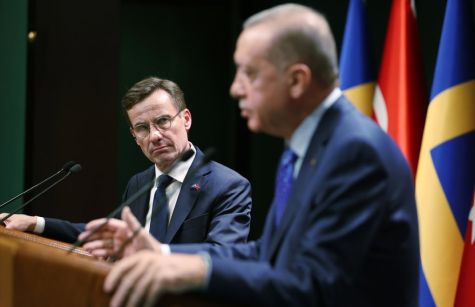
The joint press conference of Erdoğan and Kristersson on Nov. 8. (Credit: AA)
Prime Minister Ulf Kristersson visited Turkey and met President Recep Tayyip Erdoğan in early November. Here, Kristersson said "Sweden would counter terror threats to meet Turkey's NATO objections." How do this meeting and statement (along with similar others) resonate with the public and politicians in Sweden?
Sweden and Turkey have quite different definitions on freedom of expression as well as different lists of terror organizations (but Sweden labelled the PKK as a terrorist organization in 1984, long before the EU). Mr Kristersson's statement leaves room for interpretation. I think we need time until we can see more clearly what it means.
What specifically do you think Sweden will do further so that Turkey finally approves its NATO membership bid?
Foreign Minister Billström is expected to visit Ankara soon. Apparently, there is already more communication between the relevant government agencies in Sweden and Turkey.
But since neither the Swedish nor the Finnish governments can tell courts whom to extradite – that would be contradictory to the rule of law – and since Sweden gives a wide space for freedom of speech, there is a limit as to how far the Swedish government can go to meet Mr Erdoğan's demands.
NATO Secretary General Jens Stoltenberg has said that Sweden, as well as Finland, already fulfil the requirements of the memorandum. Therefore I, as well as many others here, believe that the ball is Turkey's courtyard. Does Turkey want to prevent the Defence Alliance's much needed enlargement in times of a brutal war in Europe, and in its own backyard?
The extradition of political dissidents/ exiles/ refugees is on Turkey's list of requests from Sweden so that it approves its NATO membership bid. To what extent do you think Sweden will/can fulfil this requirement and how reconcilable do you think this would be with the right to seek asylum from political persecution and Sweden's being a rule of law?
I trust that Sweden's courts have integrity. Foreign Minister Billström, in a recent interview, stated that the rule of law applies.
Why is Turkey more opposed to Sweden's NATO bid?

Amineh Kakabaveh, an Iranian Kurd, was a independent MP. (Credit: AA)
Why do you think Turkey - or Erdoğan - has been objecting to Sweden's NATO membership bid so fiercely while taking a rather milder stance on Finland?
Because Sweden, since decades, has become a new home for many Kurds from Turkey, Syria, Iran and Iraq – many of whom are today well integrated and part of the Swedish society. Among them you also find parliamentarians. It should be underlined, however, that Kurds are never a homogenous ethnicity, neither in Sweden nor elsewhere.
But also, those Kurds in Sweden who are against the PKK usually consider Turkey's current policies to be anti-Kurdish (the assessments were slightly different when peace negotiations were still going on).
Do you think Turkey will finally approve of Sweden being a member of NATO?
My take is that it may require some time, and probably won't happen until after the elections in Turkey. After all, Mr Erdoğan's top priority is to have a safe win in the elections, and he has stated that he wants something from Sweden to show to his people.
Bombing in Taksim and Turkey's airstrikes
Citing the İstanbul bombing on November 13, Turkey has been bombarding Syrian and Iraqi Kurdistan regions since November 19. How has the Swedish government responded to the blast in İstanbul and Turkey's airstrikes afterwards?
After the İstanbul bombing, Foreign Minister Billström said that Turkey has the right to defend itself, but that civilian targets must be prevented.
However, I have not seen that Mr Billström has acknowledged Turkey's version of the attack, i.e. that the Kurdish YPG in Syria was behind it.
Both the PKK and PYD deny such claims. The YPG commander, Mazloum Kobane, said in a recent interview with al-Monitor that the woman who was arrested for having planted the bomb, a Syrian Arab, comes from family with links to ISIS. Allegedly, three of her brothers died fighting for ISIS, and another one is said to be a commander in the Turkey-backed opposition in Afrin.
And after all, what interest would a Syrian Kurdish military force, working shoulder-to-shoulder with Americans in controlling ISIS in northeast Syria, have in planting a bomb on İstiklal? And when the PKK is behind attacks, they are known to claim them, as was the case after the despicable bombing against the police in Mersin in September.
So, until more light is shed on who was behind the İstanbul blast, one issue at stake is whether Turkey is attacking the right target and what the attacks mean for civilians.
The United States, which has forces next to YPG bases in northern Syria which are under Turkish attacks, has been somewhat vague. But in my view, the U.S. used a sharper tone than Billström so far. A spokesperson for the U.S. Central Command for instance underlined that the Turkish air strikes have already placed "the ISIS mission at risk".
What does its response to these incidents tell us about Sweden's foreign policy approach under the new government?
That the Swedish government is nervously awaiting Turkey's approval of its NATO bid. This makes Sweden's tone vis-à-vis Ankara softer than that of the United States.
Do you think that its response has anything to do with the NATO membership process?
Certainly.
(SD)





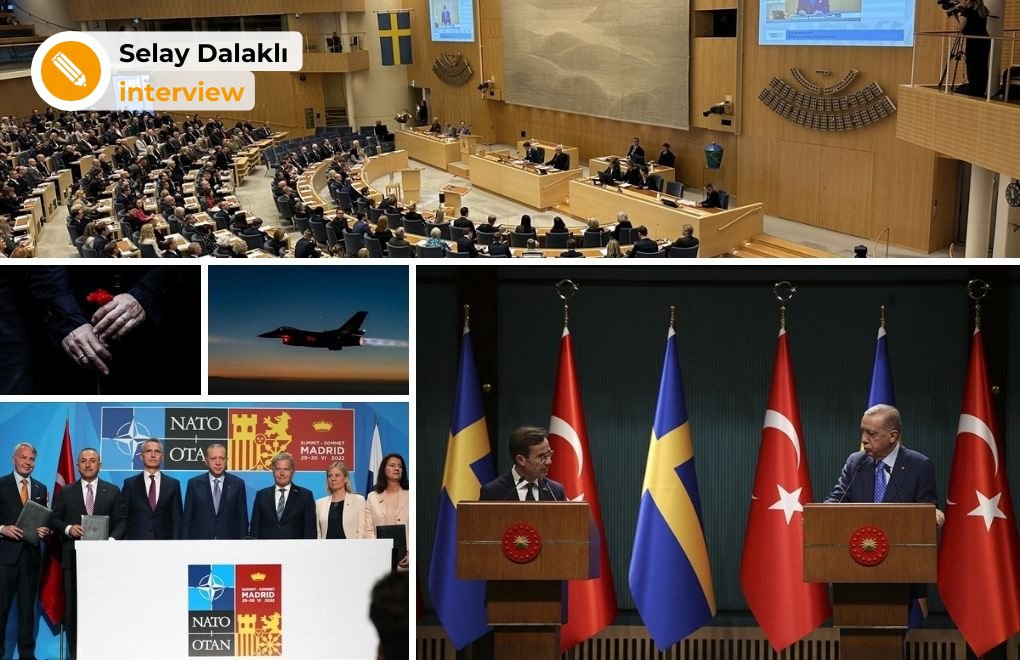

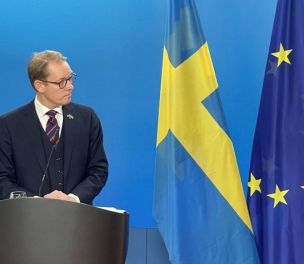

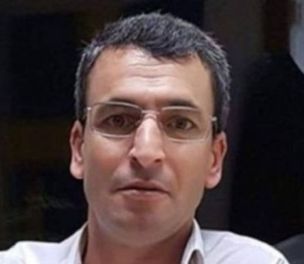
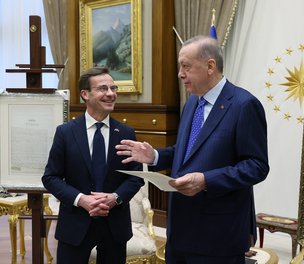
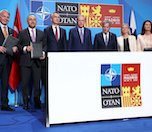


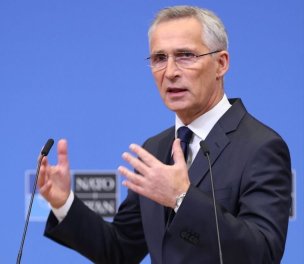
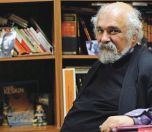
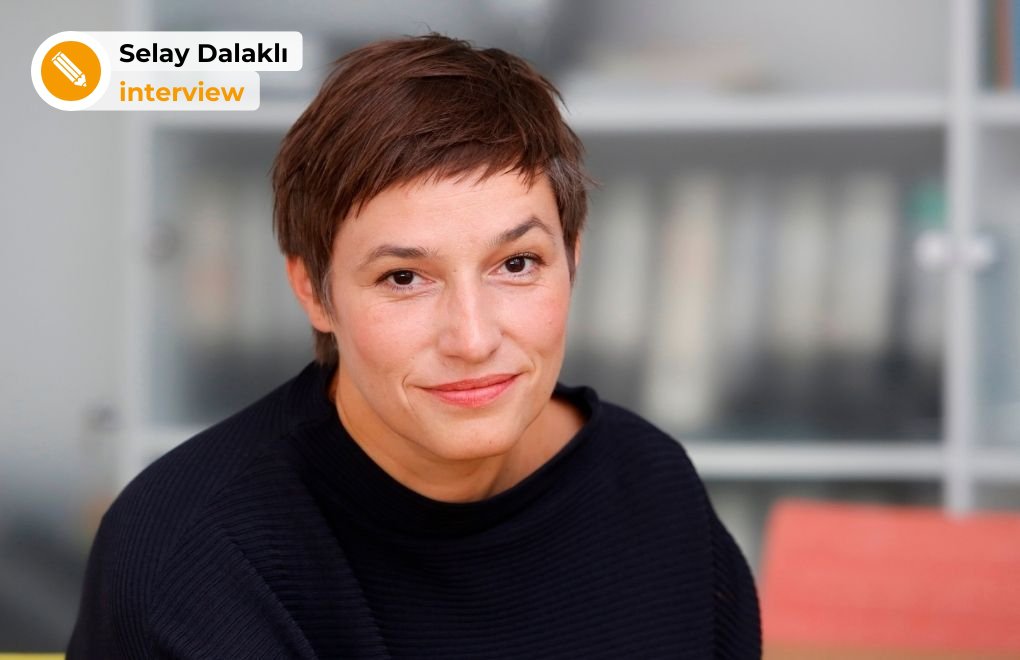
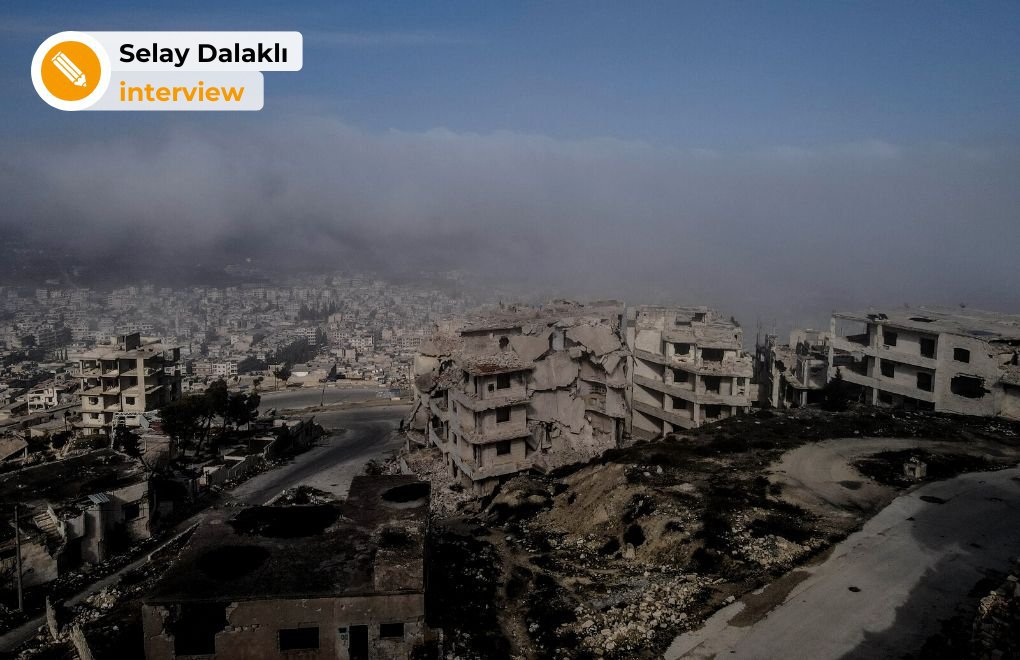
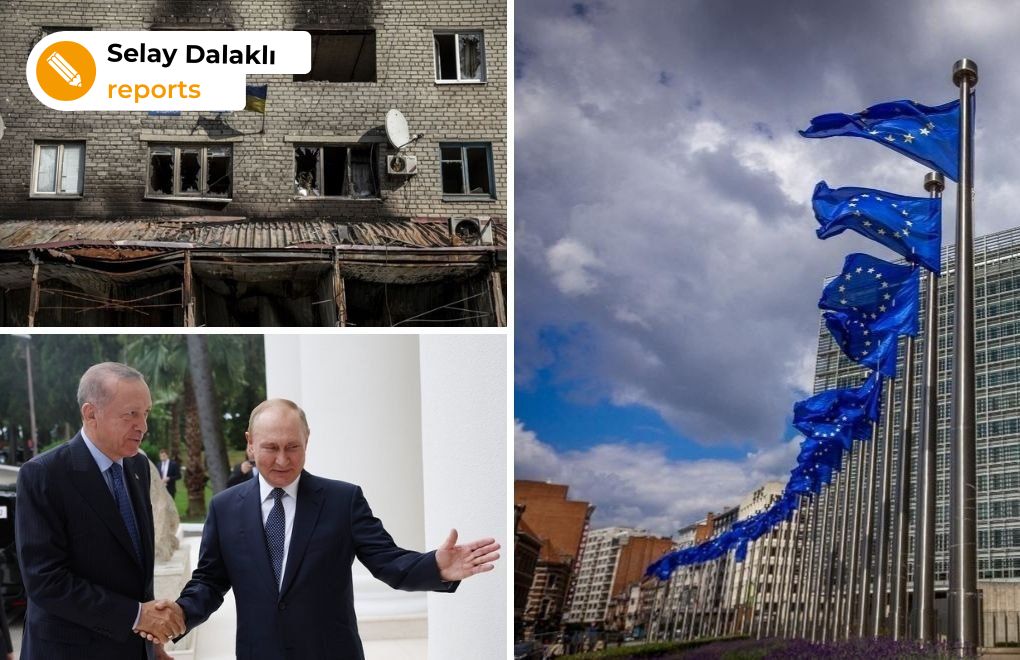
.jpg)
